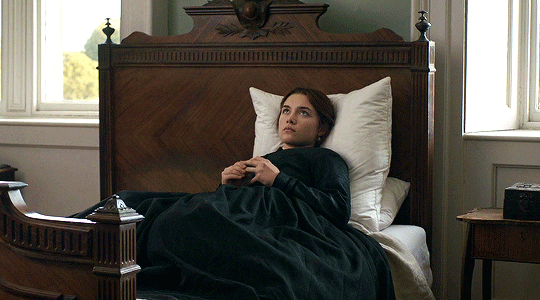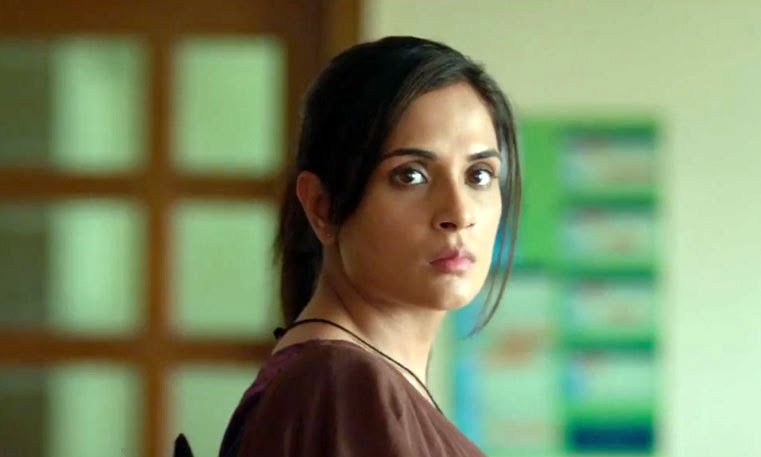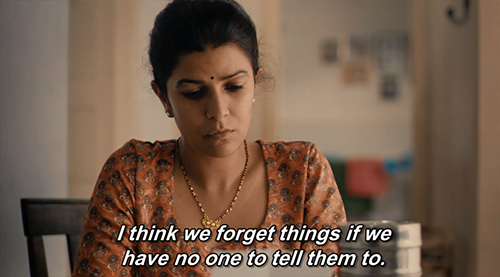The very thing that astonishes me upon experiencing cinema that astounds is the fabric which is woven together to impart ingenuity to each character. Throughout history, women have been shown as an appendage logged into the domestic space and as pioneers of opposing such an ideology. The different thematic and cultural approaches to painting female characters who inspire revolution, wherever they may deem fit has been multifarious. Each of these characters thread their narratives with utmost dexterity.
- Christine McPherson from Lady Bird(2017)
Lady Bird is an American Film with an ensemble cast which centers around Christine played by Saoirse Ronan. It’s a coming-of-age movie which concentrates on Christine’s volatile relationship with her mother. The film is set in Sacramento, California which is a location resented by Christine. Christine is a senior at a Catholic School and quintessentially wishes to escape her school and city to go to a “culturally enriched” college in the east coast. The movie deals majorly with her conflict with her mother’s opinions, her quest for friendship and her romantic endeavours, which fail eventually. Christine makes it a point to spite everyone around, much to her mother’s chagrin. It’s an attempt at being a person who has cracked her shell and grown.

With her short red hair and unnerving spirit, we see how she changes from Christine to “Lady Bird” which is a name she gives to herself. The cocoon of emotional turmoil splits open when she errs and flows ahead in life. Her relationship with her mother develops and we see things from the mother’s point of view at the very end when Lady Bird goes to college and reads a rewritten and conscious letter her mother wrote to her. We see how alike Christine and her mother are. In the midst of finding herself, betraying her best friend and losing her virginity, Christine grows up. And with the final Metamorphosis, Lady Bird becomes Christine, a name given by her parents in Sacramento.
Throughout history women have been shown as an appendage logged into the domestic space and as pioneers of opposing such an ideology. The different thematic and cultural approaches to painting female characters who inspire revolution, wherever they may deem fit has been multifarious. Each of these characters thread their narratives with utmost dexterity.
- Katherine from Lady Macbeth(2016)
Lady Macbeth is a British film directed William Oldroyd and written by Alice Birch. It is loosely based on the novella Lady Macbeth of the Mtsensk District by Nikolai Leskov. The movie is a gripping watch because of the musicality of its drama. The narrative follows Katherine who is played by Florence Pugh through her loveless marriage and a passionate affair. Lady Macbeth has always been a gravely fierce character with a streak of insanity, even originally when Shakespeare wrote her.

In this movie as well, qualities such as self preservation and passion are highlighted. Katherine tries to escape the emptiness of her marriage through the virility of her affair with another man. In the very end, she defies him too when he confesses to their actions. The film talks of the condition of a woman who has to pay a price for falling in love and the insanity and lengths she goes to in order to be content and live away from suspicion. The cycle of hide-and-seek continues to play, and ends with Katherine alone, all over again.
Also read: Why We Need More Female Characters Like The Women In Ishqiya
- Devi from Masaan(2015)
Masaan is an Indian movie directed by Neeraj Ghaywan. The film juggles with two stories which coincide at the very end—one of them involves a love story which is left unfulfilled due to certain reasons and another in which Devi, a woman played by Richa Chaddha, falls in love with a boy from the tuition center she works in.

Devi faces criticism for wanting to have sex and refusing to acknowledge it as a sin. In this socially presssured narrative which leaves Devi distraught because of the suicide of her lover due to shame, a conversation is cracked open about the kind of relationships that are allowed for people of the Indian community. Devi battles a corrupt police officer who threatens to leak her video and comments from her father. She eventually gets a job and decides to leave home. The character of Devi tumults and shows itself when she gets a second chance at love and decides to not go through with it. Her sorrow is shared by many and her stigma is a common one. Devi, the name itself is an act of war on people who pray to a goddess (Devi) for their wishes but insult and harangue women in general.
When I say ‘female characters transformed cinema’ , I mean that they leaped from their expected roles to the central narrative and talked about much greater issues. These are round characters who become certain kinds of people because of things that happen in their lives. It is character like these who remind us that relatability is a factor which drives the human experience of cinema.
- Ila from The lunchbox(2013)
The Lunchbox is an Indian movie directed by Ritesh Batra. The movie explores an unlikely friendship between an older man Saajan and a married woman Ila played by Nimrat Kaur through a letter exchange which is triggered by a mistake committed by the famous dabbawalas of Mumbai.

Ila is a much simpler character. She is unsure about this letter exchange between her and Saajan. She is a housewife who finds out that her husband is unfaithful and does not know how to confront him. She is submissive but not docile. She is someone who teaches us that there is no better time than now to leave a harsh circumstance. She wishes for a happier life with her daughter. Although Ila has a story that isn’t complex, her struggle to win back her husband’s affection and to escape the sort of life her mother led is inspiring. At the very end, Ila is shown to have escaped her house and is on her way to finding happiness.
Also read: Bollywood’s Obsession With Disposable Female Characters
- Fleabag from Fleabag(2016)
Fleabag was originally a one woman show which was later converted into a British series directed by Harry Bradbeer and Tim Kirkby. Fleabag is an unconventional and quirky character who tells her much graver narrative in a funny tone. It is set in London.

She is juggling the death of her best friend, her relationship with her father and sister and making her way through her romantic maze of a life. She wades through feminist ideologies and the death of her mother which leaves her family scarred and mostly torn. She faces an over-the-top brother-in-law and a father who has nothing to say to her. Fleabag is an amalgamation of feelings, emotions and anger which is emitted when you’re vulnerable. Fleabag is every woman ever because she is so raw and unpredictable. She laughs, cries and walks ahead but sometimes sneaks into the past. The way Fleabag deals with trauma and accepts her fate while wanting to change it, implores the story of everyman.
Each of these characters are socially rejected for wanting to live their life the way they want to and for who they are internally. When I say ‘female characters transformed cinema’, I mean that they leaped from their expected roles to the central narrative and talked about much greater issues. These are round characters who become certain kinds of people because of things that happen in their lives. Characters like these remind us that relatability is a factor which drives the human experience of cinema.
Featured Image Source: Feminism In India
About the author(s)
Aamna is an impulsive writer who is studying and falling in love with English literature. She is learning, unlearning and relearning herself and the world around her every single day. She loves painting and believes that she is the daughter of post modernism.



